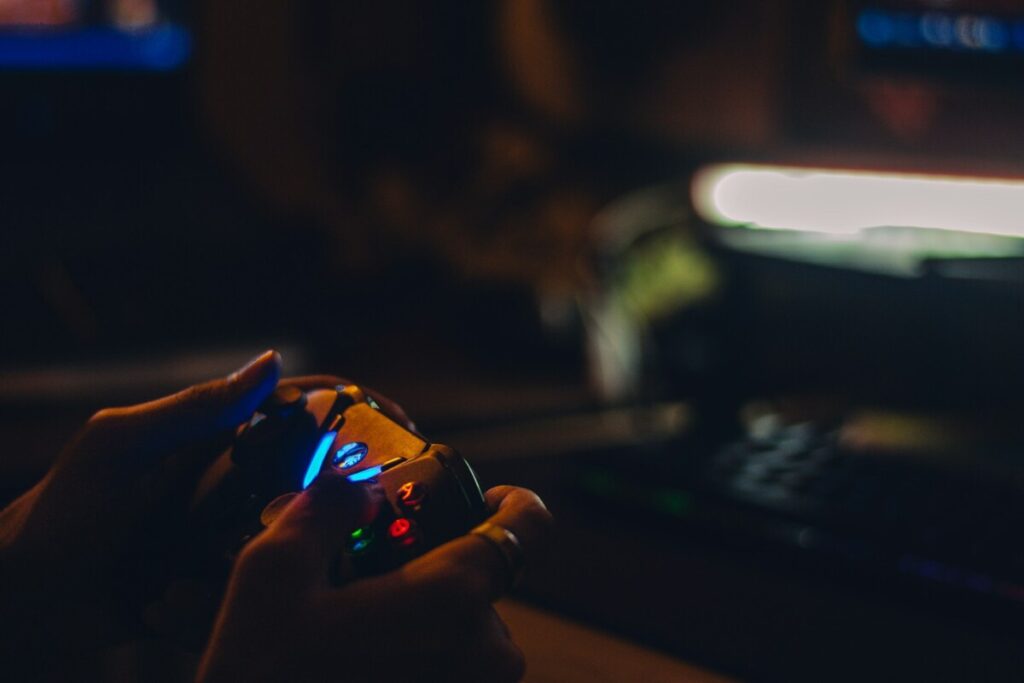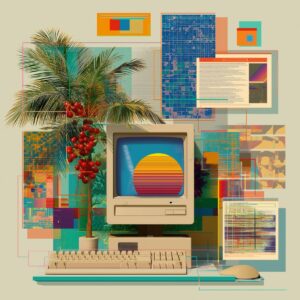How Hardware, AI, and Crypto Are Redefining Gaming

Gaming has changed a lot since its simple beginnings, mixing tech and creativity. The hardware makes game worlds look real. AI makes characters seem alive. Cryptocurrencies change wins in games into real money. Now in 2025, these changes are turning gaming into a place for imagination, meeting people, and earning money. For UK gamers wanting to mix gaming and real payouts, Gameshub’s list of top online casinos shows platforms that are regulated and use crypto wallets with fun slot games, easily mixing virtual money and real prizes. Let’s look at how hardware, AI, crypto, and new community ideas are changing the gaming world.
Hardware: Crafting Immersive Realms
Gaming hardware is the base for new experiences that draw people into the action. It’s not just about better graphics, but making you feel like you’re really in the game. NVIDIA’s RTX 50-series GPUs use ray tracing to create very realistic lighting, like being under the Erdtree in Elden Ring 2. AMD’s RDNA 4 chips keep your computer cool while playing Starfield for a long time, saving energy and keeping frame rates high.
Accessories are also getting better. Sony’s PSVR 3 brings Horizon Call of the Mountain to life with 4K visuals for each eye, and HaptX’s gloves let you feel the weight of weapons in games like Doom. Augmented reality glasses, like Nreal Air, bring Pokémon GO battles to your park, mixing the digital and real worlds.
Gaming accessibility is getting better. Cloud platforms like Xbox Cloud Gaming let you stream GTA VI on cheaper devices, removing money issues. Modular PCs from Framework let you do upgrades while being mindful of the environment, which cuts down on electronic waste. Hardware aims to make gaming accessible, immersive, and eco-friendly.
AI: Worlds That Learn and Adapt
Hardware provides the base, but AI makes the game interesting. It gives games a human feel. NPCs don’t just follow routines. They change as you do, so your game feels unique.
Procedural generation is hot right now. The Unreal Engine 5 AI tools create Fortnite maps that change based on how you play. If you build a base, the land around it changes. In The Witcher 4, CD Projekt’s AI makes townspeople talk about what you do, like if you let a bandit go or burn a town. Games stay even: FIFA 26 changes AI opponents during the game, so beginners and pros can have fun. AI isn’t replacing developers—it’s their co-creator, amplifying bold visions into games that feel alive and tailored to you.
Crypto and Blockchain: Play with Real Stakes
Cryptocurrencies and blockchain technology are changing the gaming industry by allowing players to turn in-game accomplishments into actual money. This shift is not just a trend. It indicates a move toward digital ownership and ways to earn.
NFTs let you own items within games. Take Star Atlas, for instance: you can build a spaceship, trade it on the Solana blockchain, and earn crypto through missions. This setup is secure and transparent. Play-to-earn games like Thetan Arena give players tokens for completing tasks. Some people in developing countries are even earning a living through these games. Layer-2 solutions like Polygon help keep transactions fast and reduce the energy needs of crypto processes.
There are, of course, challenges. Crypto prices can be unstable, erasing earnings, and scams exist. Yet, blockchain tech has potential, creating open loot systems, cross-game item use like using a Valorant skin in Overwatch 3, and player voting on game updates via DAOs. Now, the time spent gaming can give you rewards beyond just a leaderboard ranking.
Community Innovation: Gamers as Creators
Apart from big tech companies, players are also changing the gaming world by using tools that let them be creative. Platforms such as Roblox and Dreams let people make games inside other games. For example, they can create versions of Among Us or large role-playing games, even if they don’t have a background in coding. Decentralised modding hubs, which use blockchain, allow creators to sell things like custom Minecraft skins or GTA VI missions directly to players, giving the creators a fair share of the money.
Open-source engines like Godot are becoming very popular. People work together to create free tools that are as good as those offered by Unity. Sites like Patreon help fund independent developers, which leads to the creation of hit games like Stardew Valley 2. Even esports is getting a boost from the community. Artificial intelligence is used to analyse games, which helps amateur teams create strategies like professionals. Also, cryptocurrency is used as prize money in Dota 3 tournaments, rewarding talented players who are just starting out. This goes beyond just gaming; it’s a creative rebirth where players influence what’s to come.
Conclusion: A New Golden Age
Gaming is being reshaped by better technology, AI, crypto, and player feedback, leading to more immersive and intelligent experiences where your voice matters. For instance, imagine a VR game where AI companions exchange your digital collectables for crypto, developed by players worldwide and streamed directly to your phone.
There are challenges to consider, like AI data protection, uncertain crypto regulations, the expense of new technology, and ensuring fair community spaces. Despite these challenges, things are looking up. These improvements are not just changing games; they’re making them better for everyone, encouraging you to get involved, create content, and win. So, whether you’re a casual player or a crypto content creator, what will you bring to the table?







